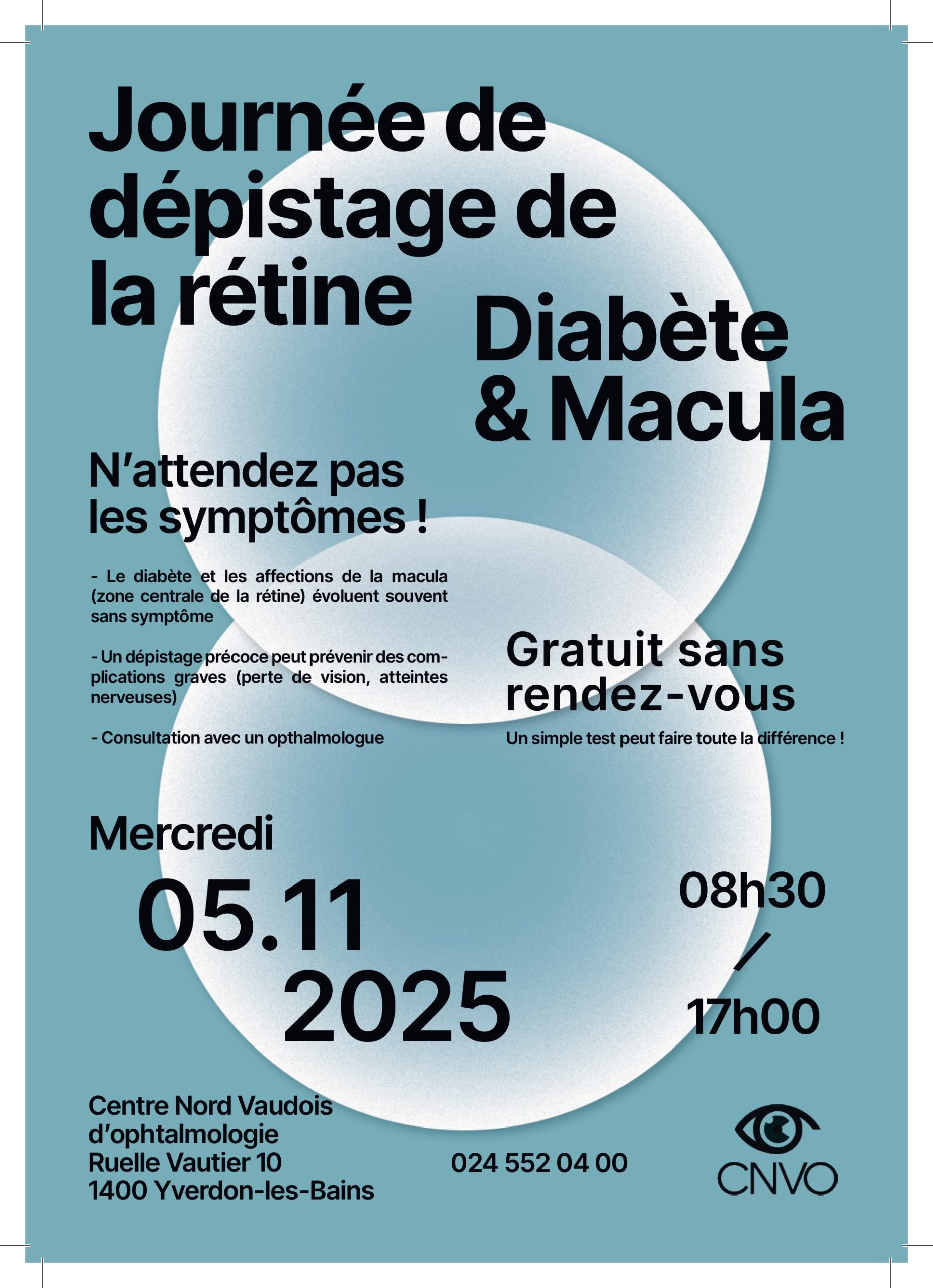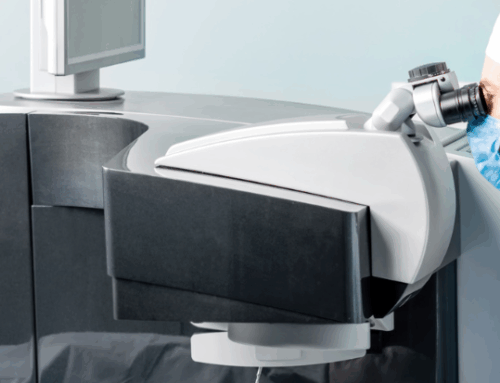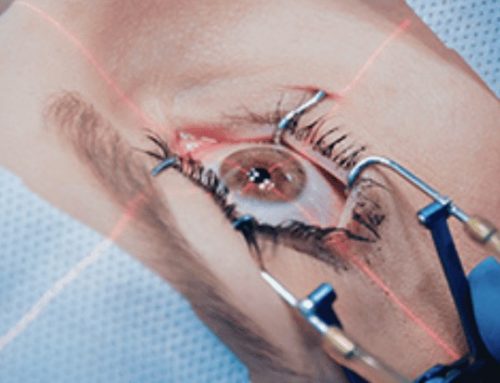Wednesday, November 5, 2025 - CNVO
Free, no appointment necessary - From age 60
The Centre National de la Vision et de l'Ophtalmologie (CNVO) is organizing a free screening day dedicated to retinal health, on Wednesday November 5, 2025, from 8.30am to 5pm, without appointment.
This initiative is aimed primarily at people aged 60 and over, but remains open to anyone wishing to take stock of their eye health.
Why a retinal screening?
The retina is a thin membrane at the back of the eye, essential for vision. It transforms light into nerve signals sent to the brain.
Certain diseases, such as diabetes or macular disorders (including Age-Related Macular Degeneration - AMD), can progressively and painlessly alter this sensitive area.
At first, these disorders cause no symptoms: vision remains clear, and there's nothing to suggest a problem.
However, lesions may already be present. If not detected early, they can progress to irreversible vision loss.
That's why regular screening is essential, especially from the age of 60 onwards, when the risk increases significantly.
Diabetes and the retina: a close link
Diabetes is one of the world's leading causes of avoidable blindness.
Over time, excess blood sugar weakens the small blood vessels in the retina. This complication, known as diabetic retinopathy, affects almost a third of diabetics.
Regular screening allows :
-
detect the first signs of weakened retinal vessels;
-
prevent progression to severe forms;
-
and adapt medical and ophthalmological follow-up.
Early diagnosis can often prevent long-term vision loss.

The macula: a key zone for fine vision
The macula is the central part of the retina. It is responsible for detail vision, reading, face recognition and color perception.
With age, it can be affected by Age-Related Macular Degeneration (AMD), a common condition after the age of 60.
Macular screening can reveal :
-
visual perception abnormalities (distortion, blurred areas);
-
early alterations visible only on ophthalmological examination;
-
and refer patients for appropriate treatment, sometimes even before symptoms appear.
How does screening work?
On this day, participants will be welcomed by the CNVO team.
Screening includes :
-
a quick eye test ;
-
a non-dilated photograph of the retina (retinography);
-
and immediate analysis by a qualified healthcare professional.
The examination is simple, painless and quick (just a few minutes).
If an abnormality is detected, referral to an ophthalmologist or GP will be suggested for further follow-up.
An essential prevention initiative
This day is part of the CNVO's mission of prevention and awareness-raising.
The aim is twofold:
-
Inform the public about the risks associated with diabetes and aging eyes.
-
Facilitate access to screening, especially for people who have not recently consulted an ophthalmologist.
"A simple test can be enough to preserve vision. Many patients discover retinopathy or AMD without experiencing the slightest symptom," stresses a member of CNVO.
Vision loss is not inevitable. Thanks to early detection, the first signs of eye disease can be detected before they compromise quality of life.
👉 Don't leave your eyesight to chance.
Participate in Retinal Screening Day - Diabetes & Macula, November 5, 2025 at CNVO.
Don't wait for symptoms!
📩 Contact us for more information.






